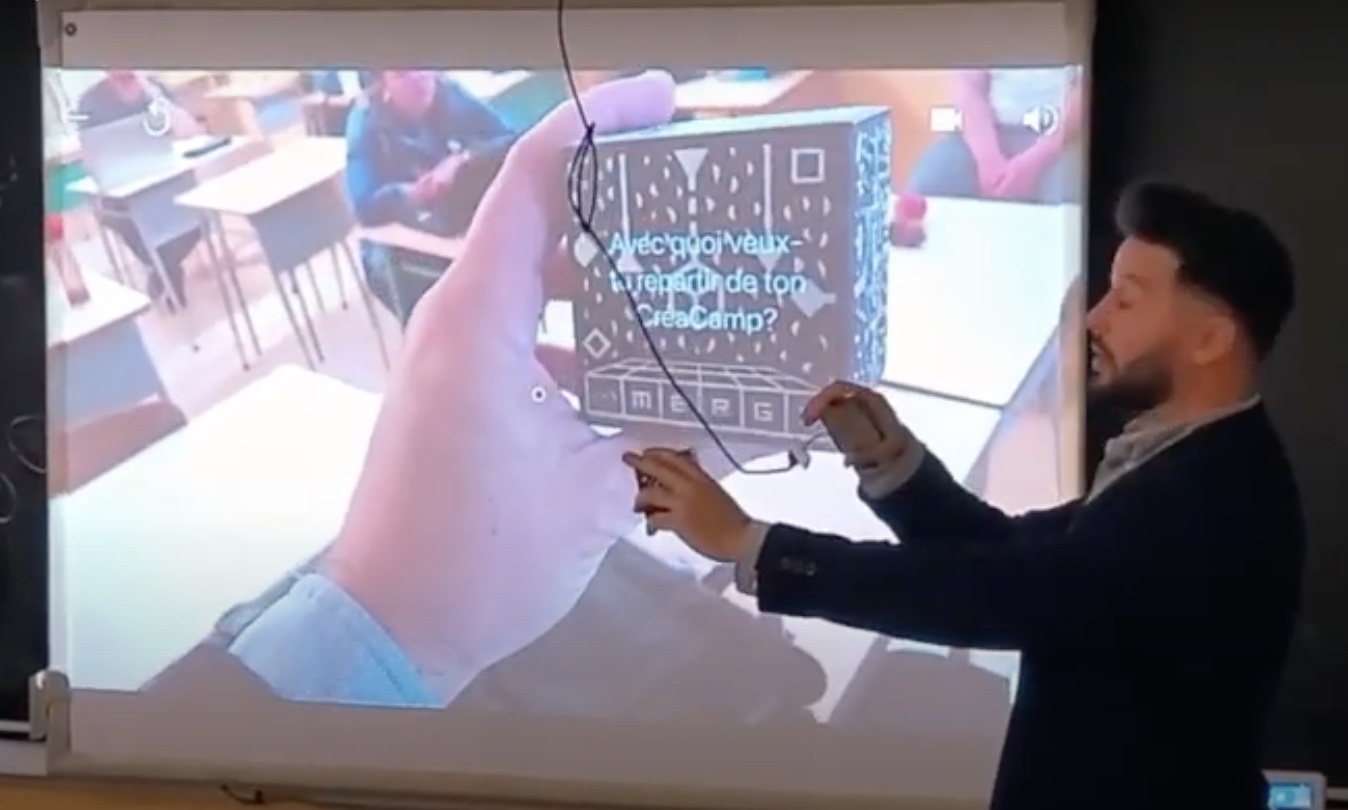Our cousins on the other side of the Atlantic are just as tech-savvy as “the rest of us”, and the field of education is one of the most heavily invested by start-ups in Quebec. “It’s a brilliant and passionate community, sincerely committed to education,” says Julie Pigeon, CEO of Edteq (with a Q for Quebec), in her recent interview with her French counterpart Anne-Charlotte Monneret. It’s important to note that only 13% of Edteq’s companies are focused on higher education.
Quebec is Canada’s French-speaking province, with Montreal and Quebec City as its main cities. It is the largest province in Canada, and the second largest country in the world, with a population of over 8 million (over 20% of the total population). Some 17,000[1] French students are attracted by the quality of higher education in Quebec and Canada, and there are almost 700 university research centers in the French-speaking province alone. Canada has thus become the number one destination for young French people in search of foreign qualifications.
In Quebec, getting into university takes preparation.
Studying in Quebec attracts more than 50,000 students from all over the world, but for Quebecers, there’s one special feature you won’t find anywhere else: the CEGEP (Collège d’enseignement général et professionnel). This is the first level of higher education. While it enables some students to move on to the world of work, it is also a prerequisite for university, awarding a two-year diploma, the DEC (Diplôme d’études collégiales). French students wishing to go on to university must either enter a CEGEP or be selected on the basis of their academic record, depending on the admissions requirements of the various universities. Then there’s the 3-cycle university pathway, where the undergraduate licence (3 or 4 years) is called the “baccalauréat”, followed by the maitrise (1 or 2 years) and then the doctorate for the post-graduate cycle (3 years or more).
To support the deployment of digital solutions in the province, the Quebec government has presented a CAD 350 million plan, 27% of which is earmarked for higher education. By 2021, Quebec has also invested CAD 10 million in the purchase of digital equipment for universities. Facing up to changes in educational systems is imperative for this young nation, whose expectations are high, and certainly accentuated by the geographical (long distances) and climatic (cold, snowy winters) contexts. It’s important to remember that in both Canada and Quebec, primary and secondary schooling takes place over 11 years (6 years of primary school, then 5 years of secondary school), compared with 12 years in France (with 5 years of primary school, then 4 years of collège and 3 years of lycée). This difference underlines the desire to steer students towards vocational training at an earlier stage, but also to better prepare students who have chosen longer university courses. Naturally, this dual orientation is also reflected in the missions of companies offering digital solutions for education.

Our American cousins are both creative and entrepreneurial at heart!
The latest studies identify 110 EdTech organizations in Quebec, the vast majority of which are based in Montreal and Quebec City. Content creation and the design of software or digital solutions are the most represented (72% of EdTech companies) and attractive fields for a national market that is divided between organizations (educational establishments and businesses) and individuals (learners and families on the one hand, and teachers and trainers on the other). It should be noted that the vast majority of these companies are small (75% have fewer than 20 employees), and their dynamism depends to a large extent on their ability to attract customers outside Quebec and even Canada. If two-thirds of EdTech companies work for customers outside the province (Canada, USA and Europe), it’s not least because the Quebec market is particularly complicated, if not conservative, when it comes to education.
Between the opportunities offered by an avant-garde educational model and the constraints arising from inertia and red tape, implementing digital solutions in the Quebec market is a challenge for those involved in the digital transformation of education. Both a land of innovation, as in the aerospace, pharmaceutical, biotechnology and information and communication technology sectors, Quebec is still to be conquered by EdTech.

Strap on your toque and stop fooling around with the puck: discover some EdTech that’s coming out of the woodwork! [2]
While it’s not possible to review all 110 EdTech companies in la belle province, here are three examples of the best and most inspiring.
As we all know, it’s crucial these days to know how to pitch! Pitching your student project, your professional project, your trade or your company to a customer or investor. It’s also a must for the founders of EdTEch, so join us in discovering Pitchonair Inc (read Pitch On Air).
Pitchonair is a digital platform that enables everyone to practice and improve their public speaking skills. It’s a genuine self-assessment tool, which lets you record yourself, comment on your oral and facial expressions, place yourself in a precise temporal context, work on flow, rhythm and intonation, and compare them with references or with your track record to measure your progress. A simple idea, accessible to individuals and companies alike. A pitch for everyone! Given that 57% of people have not practiced or rehearsed their speech beforehand, and that 36% do so in front of their phone or mirror, it’s clear that there’s a real market for this start-up. Pitchonair’s business model is based on annual subscriptions in SaaS mode.
Another key activity in any education system is assessment. Assessing skills, knowledge and professional aptitudes requires a great deal of effort on the part of teachers. With the digitization of pedagogical tools and the rise of distance learning, new assessment methods are being developed.
Nexam is a Quebec-based start-up specializing in this area. It offers an agile platform enabling teachers, trainers and recruiters from the corporate world to imagine a wide range of assessment formats and save precious time when marking exams. All functionalities are accessible entirely online, and require no prior download. In addition to the various question and exam templates available to teachers, Nexam offers a secure authoring space for respondents. This is made possible by the activation of screen and webcam recordings, and detects any attempt at fraud or anomaly during the test. Today, Nexam works with Université Laval and many other organizations in Quebec and elsewhere.

In addition to the tools and platforms designed to produce and distribute content for learners in schools and higher education, one of the major challenges of EdTech is to support teachers and teaching staff. In Quebec, too, the accelerated transformation of teaching methods is overturning the habits of the teaching profession.
L’École Branchée has chosen this digital challenge because, for us, digital challenges are above all human and relational. L’École Branchée supports the development of professional expertise in education in the digital age through a variety of creative means. The online platform offers three levels of support: access to professional information magazines by subscription, a CREACAMP continuing education offer with courses and training days, and finally a SCOOP! digital activity bank, again by subscription. The offer is very rich, and partly accessible free of charge in the form of articles or short content. Some activities are supported by the governments of Quebec and Canada.
Here, in a few examples, is a dynamic portrait of what Edtech in Quebec is doing to meet the growing challenges of the digital transformation of education. In this article, we’ve focused on companies that primarily target higher education, but it’s important to note that the primary education sector is also well represented in the start-up ecosystem of our American cousins.
PS : Find out more about #Edtech in India here and #Edtech in Latin America here !
[1] In 2018, source : Campus France
[2] The French spoken in Quebec is rich in many colorful and tasty expressions that give a different tone to the French language and make our Quebecois friends proud. “Attache ta tuque avec de la broche” (attach your toque with a spit) means that you’re going to get your hair in a hurry, while “arrête de niaiser avec le puck” (stop fooling around with the puck) means that there’s no time to lose.






